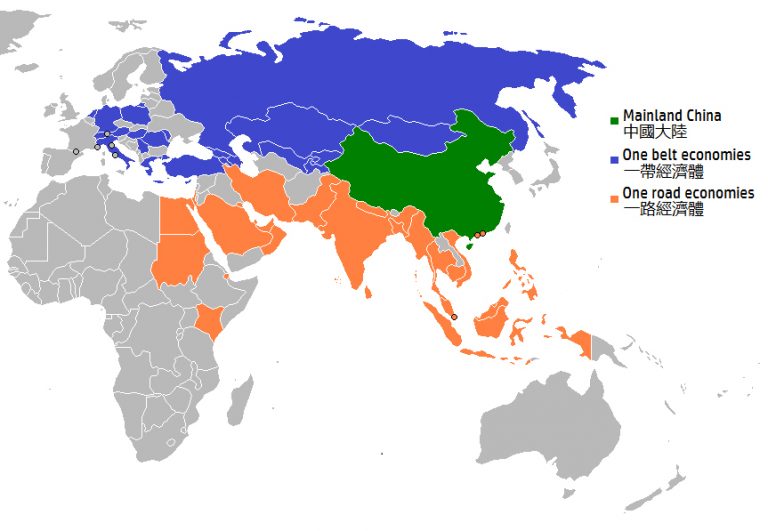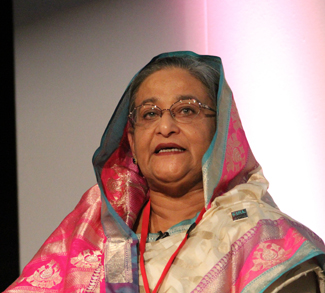Summary
Who should be held accountable for anti-terrorism’s dirtiest business?
Analysis
George Bush’s “war on terror” left America with a scarred reputation and many disturbing questions. Barack Obama has said that he wants to move forward, rather than look back. That is understandable. The new president has an ambitious agenda. Prising open the lid on previous mistakes might unleash a political hornet-swarm. But this week, with Mr Obama bunkered on Martha’s Vineyard, an ugly past roared into the present.
On August 24th the Department of Justice released a report on the CIA’s interrogation of detainees abroad, written by the agency’s internal watchdog in 2004. More important, Eric Holder, the attorney-general, directed a prosecutor to review whether interrogators may have broken the law. The announcement is part of a growing push to address past wrongdoing, by both the government and private firms. On August 28th a federal judge will consider a suit charging Blackwater, a security contractor, with war crimes. Mr Holder’s announcement may even herald a new era of accountability. Those hoping for speedy reckonings, however, will probably be disappointed.
For some, the question is not why Mr Holder named a special prosecutor, but why no one did so earlier. The CIA’s watchdog gave the report to the Justice Department in 2004. At the time the department’s Office of Legal Counsel (OLC) was revisiting laws to support new “enhanced” methods of interrogation, such as waterboarding, which induces a sensation of drowning. The OLC’s guidelines included attempts at moderation, which would be comic if they were not so ghastly. If interrogators shoved a detainee against a wall, his neck was to be supported “with a rolled towel to prevent whiplash”.
The watchdog’s report described these techniques, but went on to question their efficacy and note that other tactics were unauthorised. One prisoner, hooded and bound, was threatened with a pistol and a power-drill. Others had cigarette smoke blown in their faces until they vomited. Another was led to believe that female relations would be sexually abused in front of him. An interrogator clutched one detainee’s neck so that he repeatedly passed out. Yet no action was taken.
Mr Holder’s announcement was carefully couched. The inquiry will target only those who acted beyond legal guidelines. Mr Holder acknowledged that his decision would be controversial and insisted that intelligence officers deserve “our respect and gratitude for the work they do”. He maintained that the review may not lead to prosecutions.
But the announcement has shaken Washington. Some Republicans argue that Mr Holder has gone too far. Pete Hoekstra, the top Republican on the House Intelligence Committee, said that the inquiry “risks disrupting CIA counterterrorism initiatives”. Some Democrats claim that he has not gone far enough. However the investigation, once started, may grow.
John Durham, Mr Holder’s prosecutor, has been told to follow a narrow path, but inquiries may plunge him into a broad morass. Might some interrogators have been confused about which techniques went too far? Why simply punish CIA lackeys, rather than those who oversaw them? Should authors of dubious legal memoranda be investigated? What about their superiors, or officials in the National Security Council or in the vice-president’s office? Some Democrats want a commission to examine the full role of Mr Bush’s White House.
Much information has yet to be revealed. Entire pages of the CIA’s report are blacked out. More reports may follow. “It’s going to unfold over weeks and months and possibly years,” predicts Sarah Mendelson of the Centre for Strategic and International Studies in Washington. Inquiries with much more trivial beginnings have grown to consume the country. In 1994 Kenneth Starr was appointed to investigate Bill and Hillary Clinton’s property dealings. Four years later he used an affair with an intern to advocate Mr Clinton’s impeachment.
As the government struggles to hold its own employees to account, attempts to prosecute private firms are proceeding fitfully. Private contractors have played an unprecedented role in Iraq. If the legal framework for interrogations was distorted, the framework for contractors has at times been almost nonexistent.
Contractors are no longer immune from Iraqi law, as they were in the first years of the war, but avenues of legal redress remain winding. For example, the Military Extraterritorial Jurisdiction Act (MEJA) allows the prosecution of contractors who work for the Department of Defence. MEJA does not extend to those serving the State Department, such as the Blackwater workers who opened fire in Nisur Square in 2007, killing at least 14 Iraqis. Blackwater has said the shootings were in self-defence. Legal precedent for using MEJA and other laws remains slender.
However, two cases involving Blackwater may pave the way for further charges. In December 2008 federal prosecutors used MEJA to indict five Blackwater employees, all ex-servicemen, for the Nisur Square shooting. A judge declined to dismiss the case in February. In a separate civil suit in Virginia, a group of Iraqis, aided by American lawyers, is suing Blackwater under the Alien Tort Statute, which allows foreigners to sue for violations of “the law of nations”. The Iraqis charge that Blackwater committed war crimes in Nisur Square and elsewhere. Two affidavits even claim that Erik Prince, Blackwater’s founder, was involved in the murder of a possible informant. Blackwater has called the assertions “offensive”. Complications, however, are certain. On August 28th a judge is expected to decide whether to let the case proceed. Among other considerations, he must judge whether Iraqis can bring a “wrongful death” claim under Virginia law; the defendants’ lawyers say the contractors were technically immune from Iraqi law in 2007.
Never again?
As these legal cases trudge forward, broader efforts are being made to ensure that past mistakes will not be repeated. Mr Obama renounced harsh interrogation methods on his second day as president. On August 24th the White House announced that it would create a new interrogation team housed with the FBI, not the CIA. Contractors, meanwhile, face new scrutiny. Blackwater does not have an operating licence in Iraq; local officials refused to renew it. A bipartisan commission, created by Congress last year, is studying contractors closely. Its members flew to Afghanistan on August 23rd to investigate further.
But with two wars continuing, awkward compromises are inevitable. The Obama administration says it may continue to send detainees abroad for interrogation, a practice that leaves suspects vulnerable to torture. Meanwhile, Blackwater lives on as Xe Services and the number of contractors in Afghanistan is increasing. A preliminary report from the bipartisan commission on contractors, published in June, complained that oversight remains patchy. Mr Obama may have hoped for a clean break from the past. He remains shackled to it.



